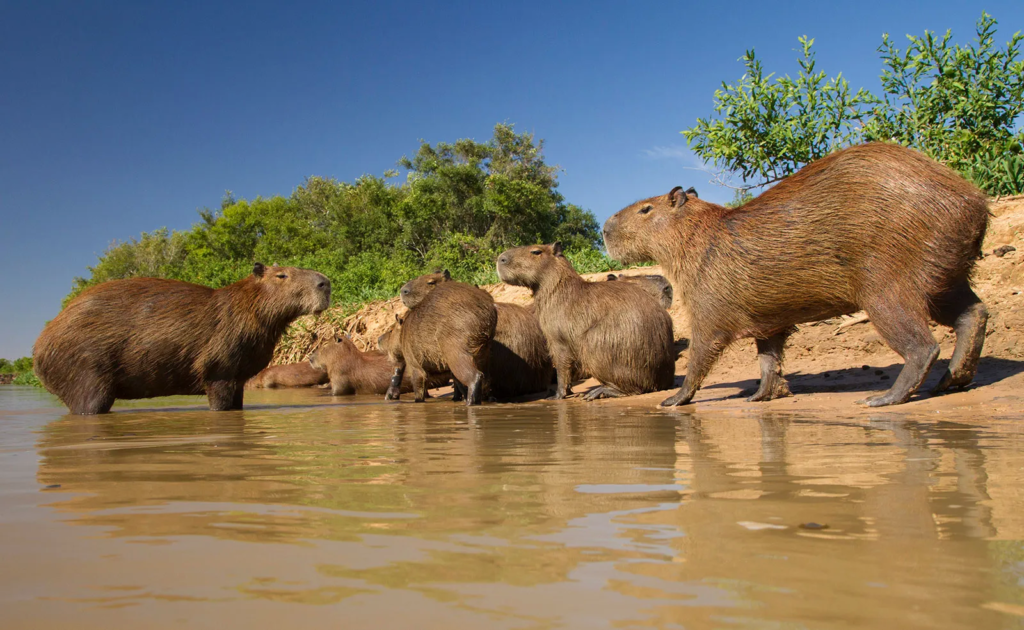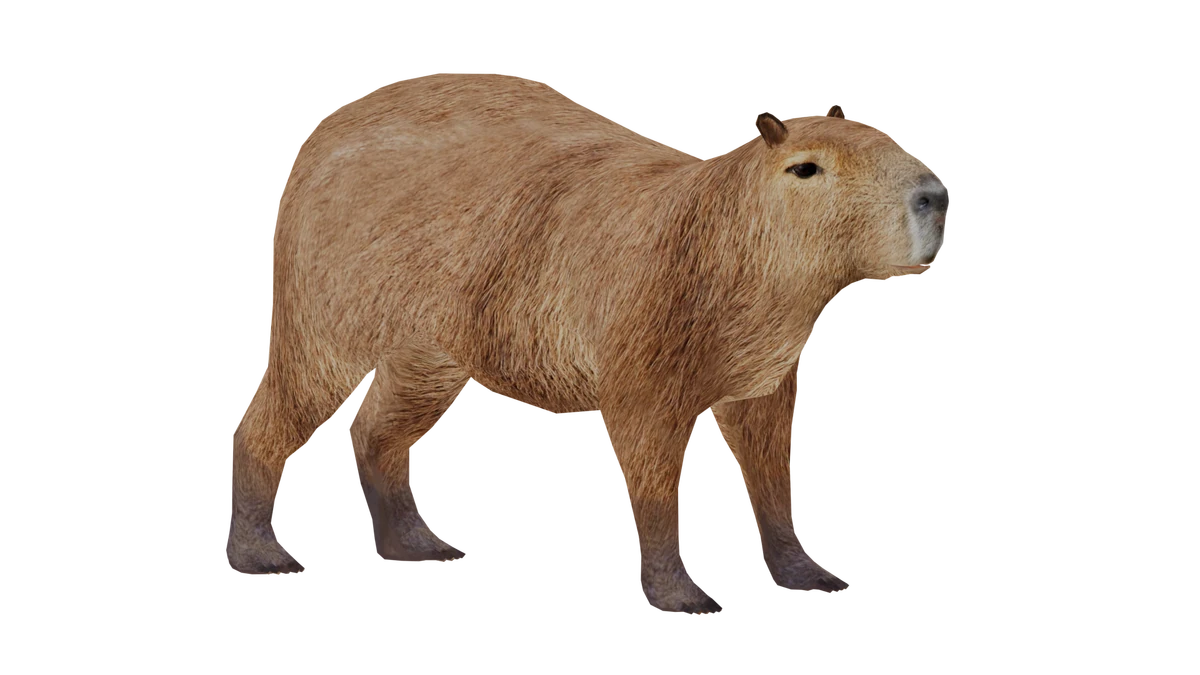Factors that Affect the Price of Capybaras, When considering adding a Capybara to your family, it’s essential to understand the various factors that can influence their price. Capybaras, as exotic pets, come with a range of costs that depend on several key aspects. Here are the primary factors that affect the price of Capybaras:
1. Age
The age of a Capybara is one of the most significant factors affecting its price. Younger Capybaras, particularly babies and juveniles, tend to be more expensive due to their longer potential lifespan and the increased demand for younger pets. Older Capybaras might be less expensive but may come with additional care considerations.
2. Breeder Reputation
Reputable breeders who adhere to high standards of care and ethical breeding practices often charge more for their Capybaras. These breeders invest in quality care, proper diet, and veterinary services, ensuring the health and well-being of their animals. Purchasing from a reputable breeder can provide peace of mind regarding the Capybara’s health and genetic background.
3. Health and Veterinary Care
Capybaras that have received comprehensive veterinary care, including vaccinations, health check-ups, and preventive treatments, may come at a higher price. Healthy Capybaras are a valuable investment, as they are less likely to encounter health issues that could result in costly veterinary bills in the future.
4. Rarity and Demand
The rarity of certain Capybara traits, such as unique coloration or patterns, can affect their price. Additionally, the overall demand for Capybaras as pets can influence their cost. In regions where Capybaras are highly sought after, prices may be higher due to increased demand.
5. Location and Shipping Costs
The location of the breeder and the buyer can impact the price of Capybaras. Shipping costs for transporting Capybaras to their new homes can vary significantly depending on the distance and the specific requirements for safely transporting live animals. It’s important to factor in these additional costs when budgeting for a Capybara.
6. Gender
In some cases, the gender of a Capybara can influence its price. Breeding potential may make females more expensive, while males might be priced differently depending on their suitability for breeding or companionship.
7. Socialization and Training
Capybaras that have undergone socialization and basic training might have higher prices. Well-socialized Capybaras are generally easier to handle and integrate into new environments, making them more desirable for pet owners.
Understanding these factors can help prospective Capybara owners make informed decisions and budget accordingly. Investing in a healthy, well-cared-for Capybara from a reputable source ensures a positive experience for both the pet and the owner.
Table of Capybara Prices by Age
To help you get a better idea of how much you can expect to pay for a capybara, we’ve put together a table of prices based on age:
| Age | Price Range |
|---|---|
| Newborn | $3,000 – $4,000 |
| 2-4 months old | $2,500 – $3,500 |
| 6-8 months old | $2,000 – $2,500 |
| 10-12 months old | $1,500 – $2,000 |
| 1-2 years old | $1,000 – $1,500 |
| 2-3 years old | $500 – $1,000 |
Note that these prices are estimates and can vary depending on the factors we discussed above.
Where to Buy Capybaras
If you’re interested in buying a capybara, there are a few places you can look:
1. Breeders
One of the most common ways to purchase a capybara is through a breeder. You can find breeders by searching online or asking for recommendations from other capybara owners. However, keep in mind that breeders may charge more than other sellers.
2. Exotic Animal Auctions
Another option is to attend an exotic animal auction. These auctions typically have a variety of exotic animals for sale, including capybaras. However, it’s important to do your research beforehand and make sure the auction is reputable.
3. Private Sellers
You can also find capybaras for sale from private sellers, either through classified ads or online marketplaces. However, be cautious when dealing with private sellers and make sure to ask for proof of health and legality.
Capybaras can make great pets for those who are prepared to care for them properly. However, they are not cheap animals to purchase. The price of a capybara can vary depending on a number of factors, including age, health, breed, availability, breeder, and location. If you’re interested in buying a capybara, do your research and make sure you’re prepared for the financial commitment that comes with owning one.
Average Capybara Prices
On average, capybaras can cost anywhere from $800 to $4,000. However, prices can vary widely depending on the factors mentioned above.
Here is a breakdown of the average prices you can expect to pay based on age and gender:
Juvenile Capybaras
- Male: $800 – $1,200
- Female: $1,200 – $1,800
Adult Capybaras
- Male: $1,200 – $2,000
- Female: $2,000 – $4,000
Where to Buy Capybaras
If you’re interested in buying a capybara, there are several places you can look. However, it’s important to make sure that you are buying from a reputable breeder to ensure that your capybara is healthy and well-cared for.
Here are a few options for buying capybaras:
- Local breeders: Look for local breeders in your area who specialize in capybaras. This can help you avoid the added expense of shipping and transportation.
- Online breeders: Several online breeders offer capybaras for sale. However, be sure to do your research and choose a breeder with a good reputation.
- Exotic animal auctions: Some exotic animal auctions may offer capybaras for sale. However, this is a riskier option, as the animals may not be properly cared for or healthy.
Capybara Care Costs
While the initial cost of a capybara is significant, it’s important to also consider the ongoing costs of care. Capybaras require a large enclosure, a special diet, and veterinary care. Here are some costs to consider:
- Enclosure: A large enclosure can cost anywhere from $500 to $2,000 or more.
- Diet: Capybaras require a specialized diet that includes fresh fruits and vegetables, hay, and specially formulated pellets. This can cost around $50 per month.
- Veterinary care: Capybaras require regular veterinary checkups and vaccinations, which can cost several hundred dollars per year.


